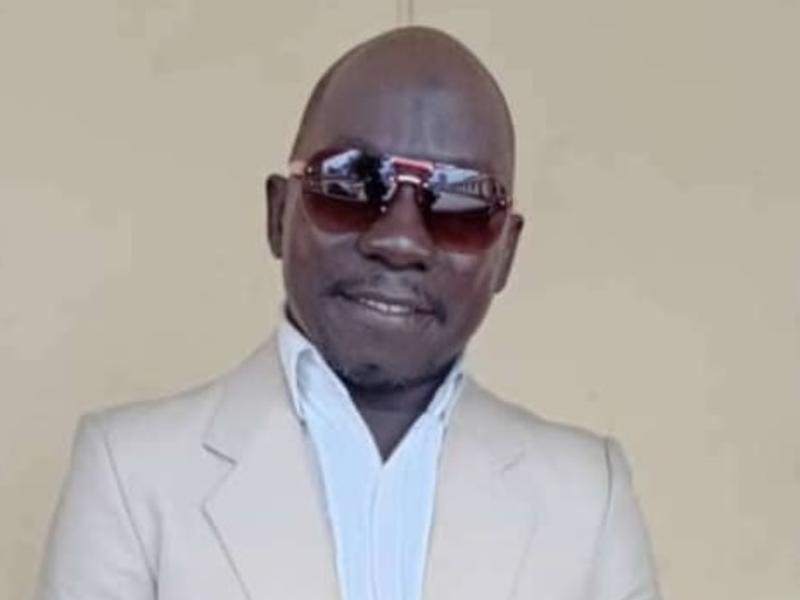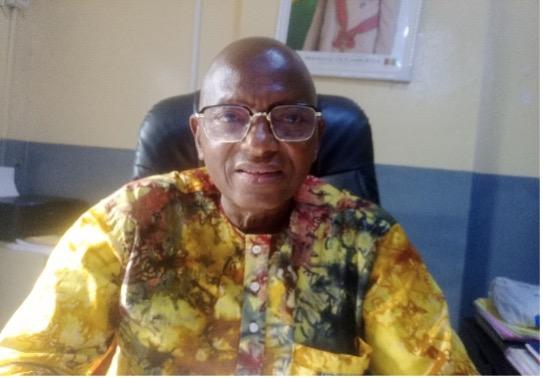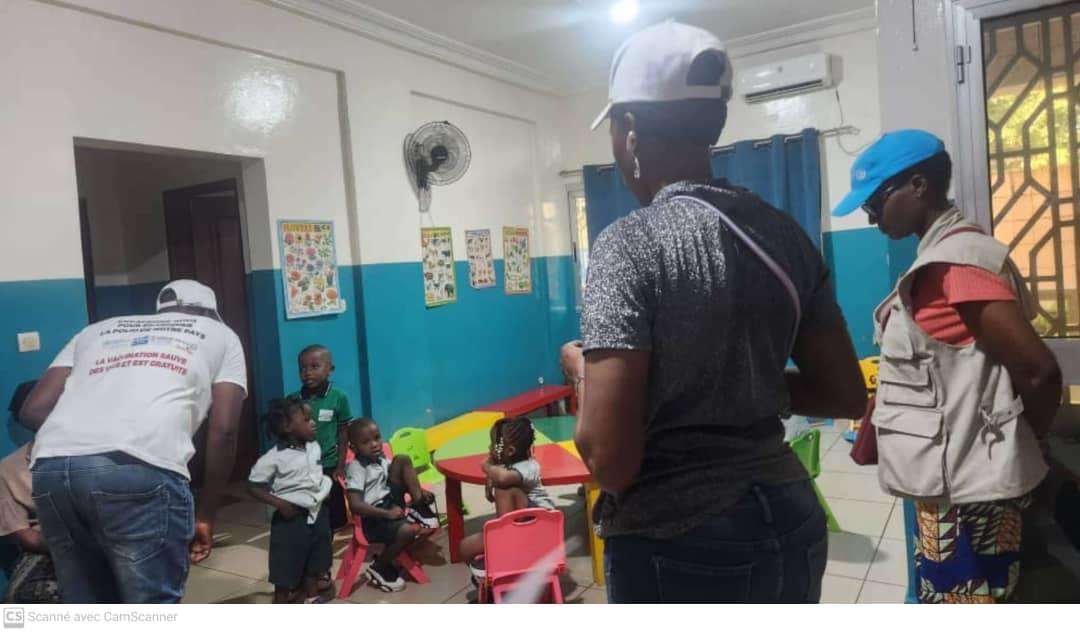Vaccination in Private Schools and Preschools: A Challenge for Vaccination Campaigns in Matam
In Conakry’s Matam commune, private schools once denied polio vaccinators entry due to mistrust and unclear directives. Thanks to a dynamic advocacy campaign and the commitment of local education authorities, children in these schools are now receiving the life-saving polio vaccine—showcasing the power of coordinated engagement.
In the Matam commune, located within the Conakry city health district, a remarkable initiative has overcome a major obstacle to the polio vaccination campaign. This story highlights the key role played by Mr. Mangué Abdoulaye Camara, a man passionate about children’s well-being and determined to ensure they have access to essential healthcare.
Matam commune has a population of 309,192, including about 61,843 children aged 0 to 59 months—the target group for vaccination campaigns. Within the commune, there are two public preschools and 69 private schools, each having an average of 45 children per class. These schools represent a strategic point of access to reach children in the targeted age range.
However, vaccination teams have often been denied entry by certain school founders or teachers, thus undermining children’s right to be vaccinated against polio. Faced with this situation, the municipal health department (DCS) organized advocacy efforts directed at education stakeholders.
The Turning Point: The Commitment of Mr. Mangué Abdoulaye Camara
Mr. Mangué Abdoulaye Camara, 35 years old and a father of four, heads the preschool department and is in charge of communications at the Matam Municipal Education Office. An alumnus of the Ecole Normale des Instituteurs de Conakry (ENI) and holder of a master’s degree in journalism and cultural facilitation, he has always been passionate about children.
During the advocacy efforts, Mr. Camara made a decisive pledge: he would disseminate information about vaccination campaigns to all preschools in the commune and issue travel orders to facilitate the teams’ work. Moreover, he provided his phone number to supervisors so he could intervene personally if any refusal arose.

Photo: M. Mangué Abdoulaye Camara. © UNICEF Guinea/2024
An Innovative Solution
This phone number became the “entry code” to Matam’s preschools during the campaign conducted from November 28 to December 1, 2024. Each time a school refused to allow vaccination, the supervisors contacted Mr. Camara. Through constructive dialogue with the relevant administrators, he immediately resolved the issue, guaranteeing teams access to the schools and ensuring all the children were vaccinated.
Tangible Results
Thanks to this strategy, every public and private preschool in the commune of Matam opened its doors to vaccination teams during the polio vaccination campaign. Eligible children were able to exercise their fundamental right to health despite the initial obstacles. Several on-site supervisors and mobilizer supervisors testified to Mr. Camara’s invaluable support during daily debriefing meetings, confirming his essential role in coordinating and resolving on-the-ground challenges. Additionally, he received constant backing from his Director, particularly in facilitating vaccination at international schools.

Photo: Mr. Ibrahima 2 Barry, Communal Director of Education of Matam. © UNICEF Guinea/2024
An Inspiring Leadership Model
Mr. Camara’s work illustrates how committed leadership can transform difficulties into opportunities. His dedication and skill in mobilizing local stakeholders made a major difference for thousands of children. The story of Mr. Camara’s “access code” stands as powerful evidence of the impact that individuals driven by social and behavioral change can have. It demonstrates that through simple but effective solutions, every child can be guaranteed the right to health, thereby contributing to a healthier future for the entire community.

Photo: Child vaccination at Internationale Modern School. © UNICEF Guinea/2024
Written by Afiavi Basilia Aguessy, Team STOP 5, UNICEF SBC Polio
Photo credit: © UNICEF Guinea/2024/Afiavi Basilia AGUESSY

